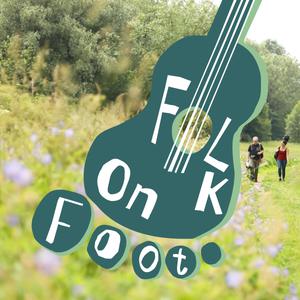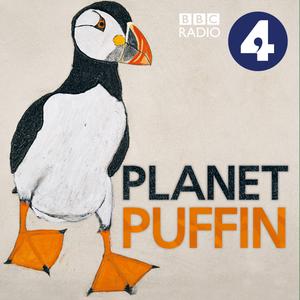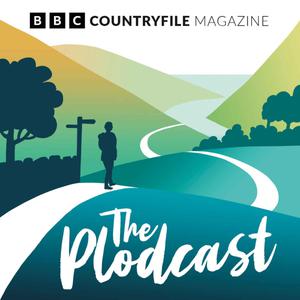
Go Wild
BBC
Nature documentaries to inspire your next outdoors adventure introduced by Harriet Noble.
- 28 minutes 51 secondsThe Perfumed Mountaineer
Hayden Lorimer explores the double life of Walter Poucher: mountain photographer and perfumer. Poucher invented the perfume 'Bond Street' and also wrote upland guidebooks. He was a pioneer of mountain photography from the 1930s onwards and devised guidebooks that used photos to help hillwalkers and climbers. But he had a second life as well - in 1923 he had published a three volume handbook on perfumes and cosmetics that remains in print and, working for the perfumers Yardley, he invented one of their signature smells, the perfume Bond Street. These unlikely twin lives came together when he field tested his fragrances and make-up across the hills and fells of Britain. Sweaty mountaineers were not quite sure what to make of Walter but he resolutely and happily continued to mix his two lives and interests. In a celebrated moment of TV history in 1980 the pop singer Grace Jones attacked the chat show host Russell Harty live on air, the other guest on camera at the time was a befuddled looking Walter Poucher. Yet when it came to staging and managing your life Walter perhaps was ahead of the game and knew things that would have surprised both Grace Jones and Russell Harty. Here was a metrosexual man decades before he was supposed to have evolved.
Hayden Lorimer, geographer at Glasgow University and committed hill-runner, explores the life and times of the Perfumed Mountaineer.
Produced by Tim Dee. First broadcast on Monday 14 May 2012.
28 July 2020, 2:25 pm - 22 minutes 18 secondsLiving World - Winter Seashore
Trai Anfield visits a wintry Bovisand Bay in South Devon in the company of Keith Hiscock, Associate Fellow of the Marine Biological Association.
They rummage amongst the storm strewn seaweed making up the strand line at the top of the beach. It is here that insects and crustaceans flourish in the food rich and clement micro world, in turn drawing in birds like wagtails and turn stones.
Down in the inter-tidal zone, along with finding a host of marine molluscs are the excitingly named volcano barnacles and beautifully coloured beadlet anenomies.
Produced by Sarah Pitt.
First broadcast on Sunday 8 February, 2015.
24 January 2020, 4:36 pm - 24 minutes 59 secondsOpen Country: The Boat Builders of Pin Mill
Writer Jonathan Gornall has attempted to row across the Atlantic twice. On the second attempt he nearly drowned but his relationship with the sea has continued. Today he spends his time at Pin Mill in Suffolk where he has just built a small sailing boat for his daughter and he hopes the boat will teach her to love the sea too. Helen Mark meets him and the boat building community who live beside the River Orwell to discover the great history of sailing which remains at the heart of Pin Mill today.
First broadcast on Saturday 28 July, 2018.
5 December 2019, 3:34 pm - 24 minutes 54 secondsRamblings: Bonding Walks: Stiperstones, Shropshire
In this new series of Ramblings, Clare Balding explores the way walking can help us bond with other people, the countryside and our history. In this first programme she's invited to take part in the 20th annual walk up to the top of the Stiperstones in Shropshire with a group of men who came together to bond as fathers. Quentin Shaw started the tradition when his sons were at primary school as a way of encouraging the men to get to know each other. The group has grown from the original five fathers to about fifty men, from teenagers to some in their seventies: fathers, colleagues, friends, sons, friends of sons. The aim is now to keep the group as diverse as possible, introducing men who would not otherwise meet: men working in mental health, children's services, housing, health, education, ex-army, scouting, craftsmen, tradesman etc. Quentin explains to Clare that overall ethos has always been to celebrate fatherhood and friendship in a low key way, and to give men a reason for a day off when they are stressed out just before Christmas. Clare is the first woman ever to be invited to join the group, who end their morning walk with a large cooked breakfast at a local pub.
Producer: Lucy Lunt.
First broadcast on Saturday 21 February, 2015.
5 December 2019, 3:17 pm - 24 minutes 46 secondsOpen Country: Somerset Wassail
In the depths of the winter, on the old 12th Night, an ancient custom is held in the cider apple orchards of Somerset. Wassailing involves pouring cider round the roots of the wassail tree, putting cider-soaked toast in its branches, singing to it, and sometimes firing guns through its branches. It's all about scaring away evil spirits, and encouraging the trees to produce a good crop in the year to come. Wassailing is a tradition with many elements: blessing the crops goes back to at least Tudor times, while the words "waes hael", meaning "be you healthy", are found in toasts as far back as the 12th century. By 1990 wassailing in apple orchards had almost died out in Somerset, but over the last thirty years the tradition has undergone a remarkable revival. As Helen Mark finds out, it's now very much alive and well - and if nothing else, provides a good excuse for a party to brighten up the dark winter nights!
Producer: Emma Campbell
First broadcast on Saturday 9 February, 2019.
5 December 2019, 12:15 pm - 28 minutes 11 secondsWinter Starlings
Wildlife sound recordist Chris Watson rigs up microphones in a reed bed near the River Severn and then waits for dusk and a wildlife spectacle to arrive.
5 December 2019, 11:00 am - 52 secondsGo Wild in colder weather
Introducing a new selection of programmes to inspire your next outdoor adventure, whatever the weather.
3 December 2019, 4:29 pm - 27 minutes 41 secondsCosting the Earth - Cycle City
The bulldozers have already begun work on London's 'cycle superhighways' or 'Crossrail for bikes'. Cycling enthusiasts have declared these segregated lanes to be the infrastructure which London needs to make cycling much more appealing for all. Andrew Gilligan, the Mayor's Cycling Commissioner says if Transport for London can get the engineering right then cycling in the capital will become safer and far more people might make the switch from cars, buses and trains to carbon free pedal power. The potential carbon and congestion savings are huge, up to 25% of transport emissions if we can reach the levels of cycling now seen in Copenhagen, and those who cycle are also healthier. However, to replicate Dutch or Danish bike culture cycling's appeal must move beyond the lycra-clad males to become the first choice for women, children and older people too.
Tom Heap finds out if these cycle superhighways can really deliver for the capital and if the huge amounts of money being spent here and elsewhere across the country can ensure a cycling revolution for all of Britain's would-be bikers.
Produced by Helen Lennard.
First broadcast on 14 April, 2015.
14 June 2019, 5:55 pm - 27 minutes 46 secondsNature - Emma Turner; a life in the reeds
In 1911 a photograph of young Bittern in the nest taken by Emma Turner proved that Bitterns were breeding again in Norfolk having been driven to extinction in Britain in the late 1800s.
Using extracts from her book, 'Broadland Birds', this programme tells the remarkable story of Emma Turner a pioneer of bird photography (1866-1940); who spent some 20 years at Hickling Broad in Norfolk, where she lived on a houseboat she designed named 'Water Rail' (after the first photograph she took in the Broadlands) and in a hut on a tiny island amongst the reeds (which became known as Turner's island).
After meeting and being inspired by Richard Kearton (who along with his brother Cherry Kearton was one of earliest wildlife photographers) she decided to take up wildlife photography and to document all the Broadland birds. She befriended two marshmen, Alfred Nudd and keeper Jim Vincent, and with their help she learned the ways of the marsh, and how to find, study and photograph the Broadland birds. It was Vincent who helped her find the young Bittern in 1911. She was awarded the Gold Medal of the Royal Photographic Society for her photograph of the bird.
Emma Turner was not only a pioneer bird photographer but a hugely respected ornithologist, whose studies of birds contributed enormously to our knowledge today. She died in 1940 with many accolades including having been one of the first ten women to be elected a fellow of the Linnaean Society and the first honorary ladies member of the British Ornithologists' Union.
Sound recordings by wildlife sound recordist Chris Watson. Produced by Sarah Blunt.
First broadcast on Tuesday 24 Jan, 2012.
14 June 2019, 4:00 pm - 27 minutes 46 secondsThe Flower Fields
There's a gold rush in Cornwall; it's been going on for more than a century - producing the first flowers of spring, daffodils especially. Like mining, it's marked the landscape, and there are networks of tiny fields west of Mousehole and in the Isles of Scilly. Smaller than tennis courts, they nestle, safe from the wind between high hedges, warm on south facing terraced cliffs. From these old flower fields, called quillets, came something even more valuable than the 'Golden Harvest' of daffodils that bloomed earlier than anywhere else in Britain - delicate Cornish violets, carnations and anemones. From Victorian times to the 1960s fragrant bunches of these sped overnight by rail to reach the London markets in the morning.
The writer Michael Bird, who lives in St Ives, listens while Bill Harvey works the plots his father tended. They are too small to admit machines and depend on the long-handled Cornish shovel. At Churchtown Farm on St Martins in the Scillies, Keith Low explains how the fields were created, by first building, then moving entire dry stone walls. With the internet and the post these old fields have become key to a modern business.
Michael walks the cliff gardens with the archaeologist Graeme Kirkham, who interprets the landscape they pass through. He draws on the recorded memories of flower farmers and workers to recapture the life of the flower fields and the industry's mysterious skills and traditions - such as boiling the soil in huge cauldrons at the end of the season to sterilise it for next year's anemones. And he meets Bob Paterson at Covent Garden market who remembers selling the violets and anemones that came on the Penzance trains, and hopes he might again.
Produced by Julian May.
First broadcast on Friday 12 October, 2012.
14 June 2019, 3:00 pm - 27 minutes 56 secondsNature - The Rainforest Canopy
With a two metre wingspan, strong hooked beak and four inch talons, harpy eagles are one of the most powerful birds of prey in the world and have been known to attack people who get too close to their nests, so when wildlife cameraman John Aitchison agreed to spend a month on a tiny platform high up in rainforest canopy in Venezuela to try and film a young eagle chick hunting for the first time, it was with some trepidation at what might lie ahead.
John abseiled down from his platform each night to grab a meal and a few hours of sleep, but before dawn he climbed back up onto his tiny platform, just big enough for him and his camera. High up in the rainforest canopy, his neighbours included bellowing howler monkeys, flocks of squawking parrots and colourful butterflies as well as highly venomous snakes and stinging ants.
He also had to endure some torrential storms and powerful winds. But his perseverance was rewarded with stunning views across the forest, magical misty mornings, very close encounters with the harpy chick and a most unexpected meeting between the young eagle and a very brave sloth!
Produced by Sarah Blunt.
First broadcast on Wednesday 6 July, 2016.
14 June 2019, 2:00 pm - More Episodes? Get the App
Your feedback is valuable to us. Should you encounter any bugs, glitches, lack of functionality or other problems, please email us on [email protected] or join Moon.FM Telegram Group where you can talk directly to the dev team who are happy to answer any queries.
 Folk on Foot
Folk on Foot
 Bunk Bed
Bunk Bed
 This Classical Life
This Classical Life
 Planet Puffin
Planet Puffin
 Classical Fix
Classical Fix
 The Plodcast
The Plodcast